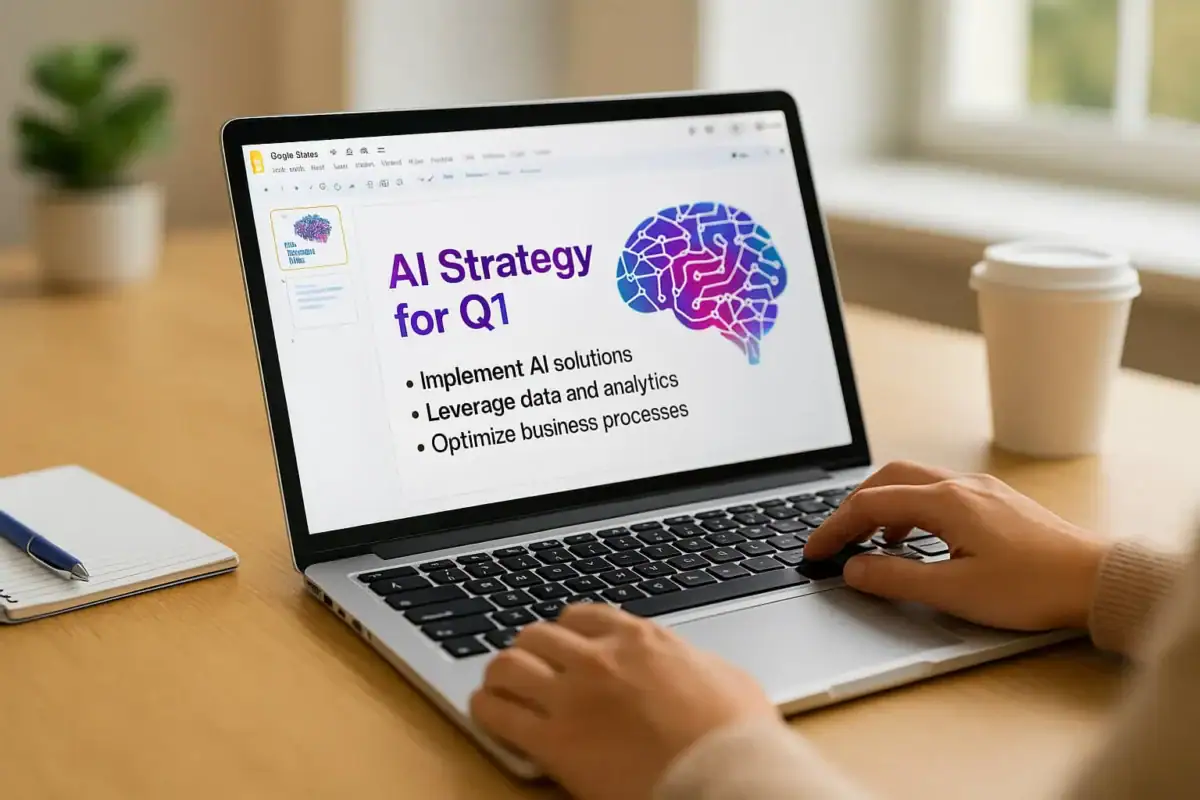
As AI systems become more capable, the question shifts from what they can do, to how they should be used. While AI promises efficiency and innovation, it also raises complex questions about privacy, accountability, fairness, and transparency.
This challenge has made AI ethics and governance a central topic in modern digital transformation. New global frameworks such as the EU AI Act and the OECD AI Principles are setting clear expectations for responsible use, requiring companies to rethink how they design, deploy, and monitor AI systems.
In this article, we’ll explore how organizations can balance innovation with responsibility, and why a strong foundation in ethics and governance is key to building sustainable, trustworthy AI systems.
What Is AI Governance and How Does It Work?
AI governance refers to the policies, structures, and oversight mechanisms that ensure artificial intelligence systems are developed and used responsibly. It provides the framework for how organizations manage risk and uphold ethical standards across the AI lifecycle, forming the foundation of AI ethics and governance practices in modern organizations.
In practical terms, effective AI governance may include:
- Establishing internal AI policies and review boards
- Conducting risk assessments to evaluate potential harms
- Ensuring data integrity and protection throughout development
- Defining clear accountability structures across business units
Ultimately, AI governance works as both a safeguard and an enabler. It prevents misuse or unintended consequences, while giving organizations the confidence to innovate.
Why AI Ethics and Governance Matter
Artificial intelligence is becoming deeply embedded in business operations. As AI systems take on more critical functions, the stakes of getting it wrong grow higher.
Without clear governance structures, organizations risk deploying systems that amplify bias, compromise privacy, or make opaque decisions that can’t be explained or defended. These failures can create compliance issues and erode trust among customers, employees, and regulators.
AI governance ensures that innovation doesn’t come at the expense of integrity. It builds transparency and accountability into the development process so that organizations can identify potential harms before they reach production.
The Cost of Ignoring AI Governance
History has already provided examples of what happens when governance lags behind innovation. As an example, Microsoft drew criticism for what’s known as the Tay Chat Bot Incident. In this scenario, a Microsoft Chatbot learned toxic behavior from observing users on social media sites.
Other examples of AI misuse include biased recruitment algorithms, flawed credit-scoring systems, and misused facial-recognition data that have all led to public backlash and legal scrutiny. Beyond reputational damage, such incidents can invite regulatory penalties and long-term brand erosion.
Investing in AI ethics and governance goes beyond compliance, it has a direct impact on a company’s bottom line. Organizations that demonstrate responsibility earn stakeholder trust, and accelerate adoption of new technologies.
Global Examples of AI Governance in Action
As AI adoption accelerates, governments and organizations worldwide are developing governance frameworks to ensure technology evolves responsibly. These efforts share a common goal: aligning innovation with ethical standards, human rights, and societal well-being.
EU AI Act (Europe): The EU AI Act represents one of the most comprehensive regulatory frameworks for artificial intelligence. It classifies AI systems by risk level—ranging from minimal to unacceptable—and imposes strict requirements on data governance, transparency, and human oversight. For businesses, the Act underscores the need to embed compliance and ethical considerations early in the AI development process.
OECD AI Principles (Global): Adopted by more than 40 countries, the OECD AI Principles promote the responsible use of AI that is innovative, trustworthy, and respects human rights. These principles form the foundation for many national governance strategies and emphasize fairness, accountability, and transparency across the AI lifecycle.
NIST AI Risk Management Framework (United States): In the US, the National Institute of Standards and Technology (NIST) introduced its AI Risk Management Framework to help organizations identify, assess, and mitigate potential risks in AI technologies. It provides practical guidance for creating measurable, auditable AI governance processes.
Corporate Governance Initiatives (Private Sector): Many leading technology companies are implementing their own AI ethics and governance structures. Google’s AI Principles, Microsoft’s Responsible AI Council, and research efforts from the MIT Media Lab and Berkman Klein Center all aim to guide responsible stewardship of AI technologies.

AI Governance Challenges and Barriers
As organizations work to implement responsible AI governance frameworks, many encounter challenges that slow adoption or weaken oversight. Building ethical, compliant systems requires blending technology with the right structure, culture, and expertise.
Fragmented Systems and Data Silos
AI operates across multiple platforms, departments, and data sources. Without strong data governance, it becomes difficult to ensure consistency. Fragmented systems often result in poor data integrity and make effective risk management nearly impossible.
Skills Gaps and Workforce Readiness
A growing concern in the AI development landscape is the lack of specialized talent familiar with both technical and ethical dimensions of artificial intelligence. Teams may understand algorithms but lack training in ethical considerations, regulatory compliance, or the principles of AI ethics and governance. Bridging this gap is critical for long-term success.
Evolving Legal and Regulatory Frameworks
From the EU AI Act to emerging U.S. standards, the global regulatory environment remains a moving target. Many organizations struggle to keep up with new requirements and to adapt their governance models accordingly. This uncertainty can discourage innovation or create compliance risk when deploying AI systems in different contexts.
Balancing Innovation and Responsibility
One of the most persistent challenges is balancing the drive for innovation with the need for ethical control. In competitive markets, businesses may feel pressure to move fast. However, without strong governance of artificial intelligence, speed can come at the cost of transparency and security. Responsible stewardship requires leaders to set the tone for sustainable AI implementation.
How Organizations Can Implement Responsible AI Governance
Translating ethical principles into daily operations requires structure and clarity. A strong AI governance framework aligns people, processes, and technology to ensure that innovation moves forward responsibly.
1. Conduct a Comprehensive AI Risk Assessment
Every organization should begin by mapping its AI systems and identifying potential risks. A structured risk assessment evaluates data integrity, bias, security vulnerabilities, and the potential societal impact of each system. This step helps prioritize governance efforts and allocate resources effectively.
2. Define Ethical Standards and Policies
Establishing organization-wide ethical standards is the foundation of good governance. These policies should align with recognized frameworks such as the OECD AI Principles or the EU AI Act, clearly defining acceptable use, data privacy expectations, and accountability measures.
3. Establish Governance Committees
An effective AI governance program depends on leadership oversight. Cross-functional committees that include IT, compliance, legal, and business leaders help ensure consistent decision-making. These groups review projects, monitor compliance, and align their efforts with the principles of AI ethics and governance as technology evolves.
4. Strengthen Data Governance
Sound data governance practices are essential for trustworthy AI. This includes maintaining data integrity, managing access, and ensuring data is collected and used ethically. Integrating privacy-by-design principles helps protect users and minimize risk across the AI lifecycle.
5. Train AI Developers and Stakeholders
AI developers, analysts, and decision-makers need training in both technical and ethical dimensions of AI. Ongoing education helps teams identify potential risks, uphold ethical standards, and integrate responsible design principles into every project.
6. Continuously Monitor, Audit, and Improve
AI governance is not a one-time exercise. Regular audits, monitoring systems, and performance reviews help organizations detect issues early and improve AI implementation over time. This iterative approach keeps governance aligned with business goals, regulations, and emerging best practices.
UNLOCK YOUR FREE 1-HOUR AI CONSULTATION
Discover how AI can transform your business with a personalized session tailored to your goals. This 1-hour consultation dives into practical ways to elevate customer experience, operations, and ROI.
- Identify high-impact AI use cases for your business
- Explore tools to optimize CX, lead flow, and revenue
- Get expert insights on automation and AI strategy
The Role of Technology Partners in AI Governance
Building ethical and compliant AI systems demands the right technology, expertise, and execution. Many organizations recognize the importance of governance but struggle to operationalize it across complex infrastructures and data environments. That’s where technology partners play a critical role.
A trusted partner can help organizations design and deploy AI governance frameworks that integrate seamlessly with existing systems. This includes aligning data governance with regulatory requirements, and improving transparency in AI models.
Partnerships also help close skill and resource gaps. Experienced implementation teams ensure that responsible AI development doesn’t slow innovation, but rather accelerates it by reducing risk and improving decision-making confidence.
At Faye Digital, our team specializes in helping businesses adopt AI responsibly: integrating governance, compliance, and performance into every stage of the AI lifecycle. With expertise across CRM, CX, and AI technology, Faye helps organizations achieve innovation that’s both scalable and ethical.
Conclusion: The Future of AI Ethics and Governance
As artificial intelligence continues to evolve, its impact on business and global policy will only deepen. The organizations that thrive will be those that treat AI ethics and governance not as constraints, but as enablers of innovation and trust.
Effective governance ensures that AI systems are designed with fairness, transparency, and accountability at their core. It protects data integrity and strengthens relationships with customers, employees, and regulators alike. Most importantly, it ensures that progress in AI technology aligns with human values and the public good.
The path forward demands collaboration between developers, executives, policymakers, and partners. By embedding ethical standards and responsible stewardship into every stage of the AI lifecycle, organizations can innovate confidently.
To learn how to design and implement responsible AI governance frameworks across your organization:
 Book Your Consultation
Book Your Consultation


